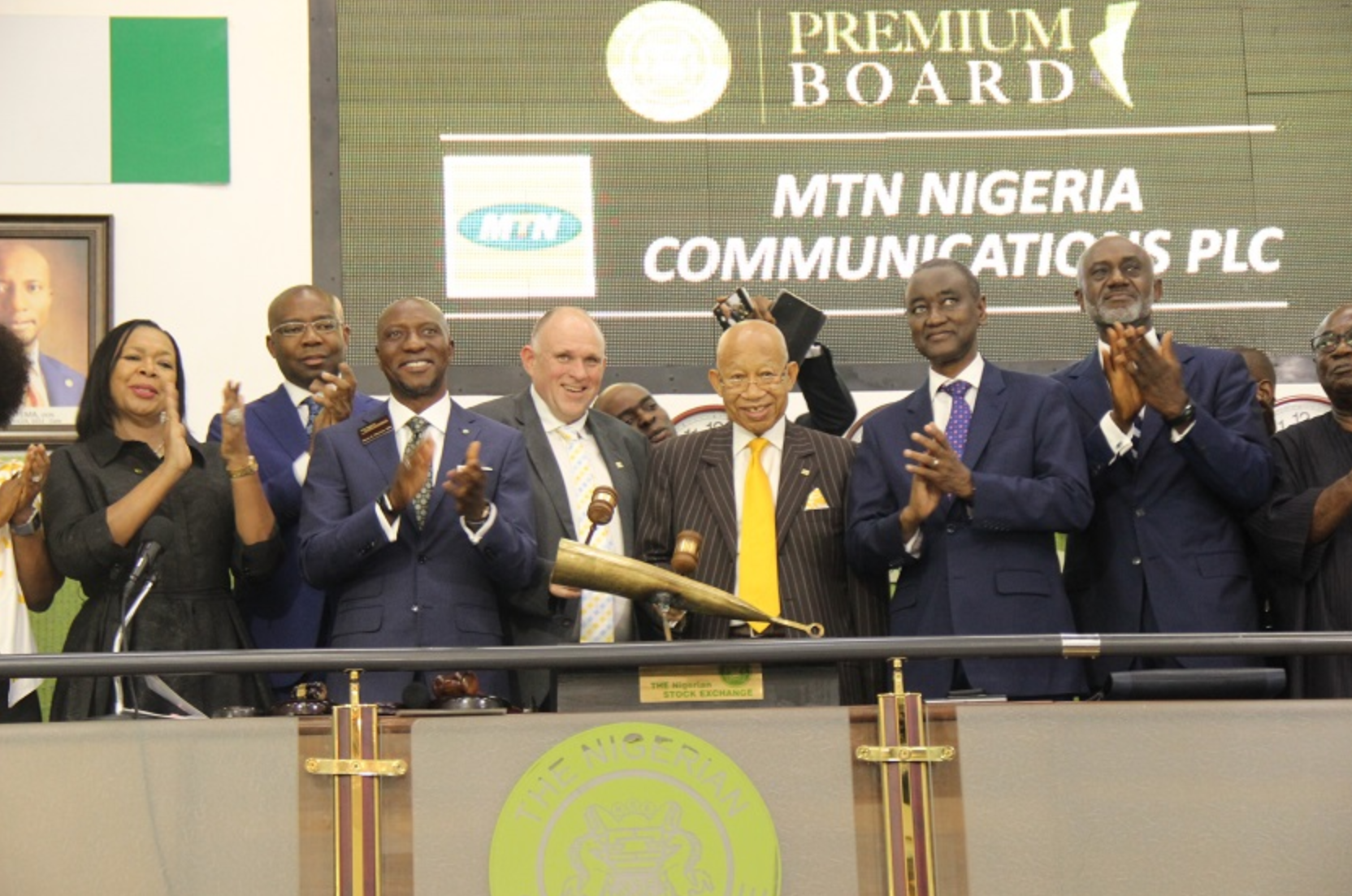The Nigerian Stock Exchange has addressed growing frustrations from retail and portfolio investors about their inability to lay their hands on MTN shares. Investors across the country, eager to own shares in arguably the most profitable company in the country are reeling as they see the stock gain a whopping 30% in just three days of trading.
NSE Response: The Nigerian Stock Exchange issued a press release on Monday addressing all the concerns sent to it by frustrated investors. As usual, Nairametrics provides a guide to each of the talking points.
On MTN’s listing: In a Listing by Introduction, however, no shares have been offered for subscription by the company prior to listing. Thus, without any intervention, it is possible that there will be no shares available for trading on the listing date. Indeed, currently, no rule of The Exchange compels shareholders in a listed company to tender their shares for trading. Shareholders are at liberty to trade their shares at any time and price suitable to them. Thus, in order to stimulate trading in the shares of companies that List by Introduction, the NSE’s practice is to urge the company to make shares available on the day of listing. In the case of MTN Nigeria, the NSE had requested the Company as part of the listing process to make shares available and The Exchange expects the company to do that.
Meaning: The exchange also insists that there is nothing it can do as MTN has not contravened any of its listing rules and cannot compel the company to offer new shares for subscription.
Difference between listing and IPO: MTN Nigeria Listed by Introduction. Where a company lists following an Initial Public Offering, shares are expected to be available for trading on the day of listing. In a Listing by Introduction, however, no shares have been offered for subscription by the company prior to listing. Thus, without any intervention, it is possible that there will be no shares available for trading on the listing date. Indeed, currently, no rule of The Exchange compels shareholders in a listed company to tender their shares for trading. Shareholders are at liberty to trade their shares at any time and price suitable to them. Thus, in order to stimulate trading in the shares of companies that List by Introduction, the NSE’s practice is to urge the company to make shares available on the day of listing. In the case of MTN Nigeria, the NSE had requested the Company as part of the listing process to make shares available and The Exchange expects the company to do that.
Meaning: In a nutshell, The Exchange is explaining the difference between an IPO and listing of shares. An IPO is an Initial Public Offering where a company decides to raise capital by offering its shares to the public. A listing, on the other hand, is a company listing its shares on the stock exchange allowing its shareholders to sell shares directly to the public. The underlying difference being that in an IPO or Public Offer or Rights Issue, its the company selling shares to (or in) the public while a listing by introduction is shareholders of the company looking to sell their shares to (or in) public. Thus, in the case of MTN ( a listing) shares will only be available if shareholders wish to sell.
On who are the people still buying and selling: Since the listing of MTN Nigeria on Thursday, May 16, 2019, a total of 105,301,759 shares valued at N12,231,997,316 have traded in three (3) days. These trades were carried out by ten (10) Dealing Member Firms in 134 cross deals/negotiated deals. According to the Rulebook of The Exchange, when a Dealing Member or Authorized Clerk has an order to buy and an order to sell the same security at the same price, the Dealing Member or Authorized Clerk may “cross” those orders at a price at or within The Exchange’s best bid or offer. A variant of this is the negotiated deal, which describes a situation where a cross deal is executed between two Dealing Member Firms at a price which may be within The Exchange’s best bid or offer or with the approval of The Exchange, outside the best bid or offer. Because cross deals involve clients of the same Dealing Member Firm on both sides of a trade, significant issues have been raised that Dealing Members who have not been involved in the cross deals have been unable to trade on behalf of their clients. The Exchange is not unconcerned about this state of affairs. Indeed, Council members of The Exchange urged brokers to discuss with their clients about possible sales of shares.
This is critical: The exchange basically acknowledges that despite the fact that MTN’s trades have been over N12.2 billion most of the deals are between clients of the same stockbroking outfit. Basically, the buyer and seller of the shares all reside with the same stockbroker. In this case, the buyer and seller could be related parties. This also means clients in other stockbroking outfits don’t even stand a chance to bid for their own clients shutting them out of any fees they may have been able to earn. The exchange also suggests it is looking into these claims as they are valid.
Bottom Line: Stockbrokers and investors looking to be part of the MTN listing transaction are frustrated because they have not been able to trade. Their motives are not altruistic, to say the least. They all want to “make a kill” from the MTN listing and being able to do that is frustrating.
Winners and losers: The NSE, Dealing Members who have traded MTN shares, MTN and of course the shareholders of MTN who have sold above the listing price and poised to ride the wave for months to come.
